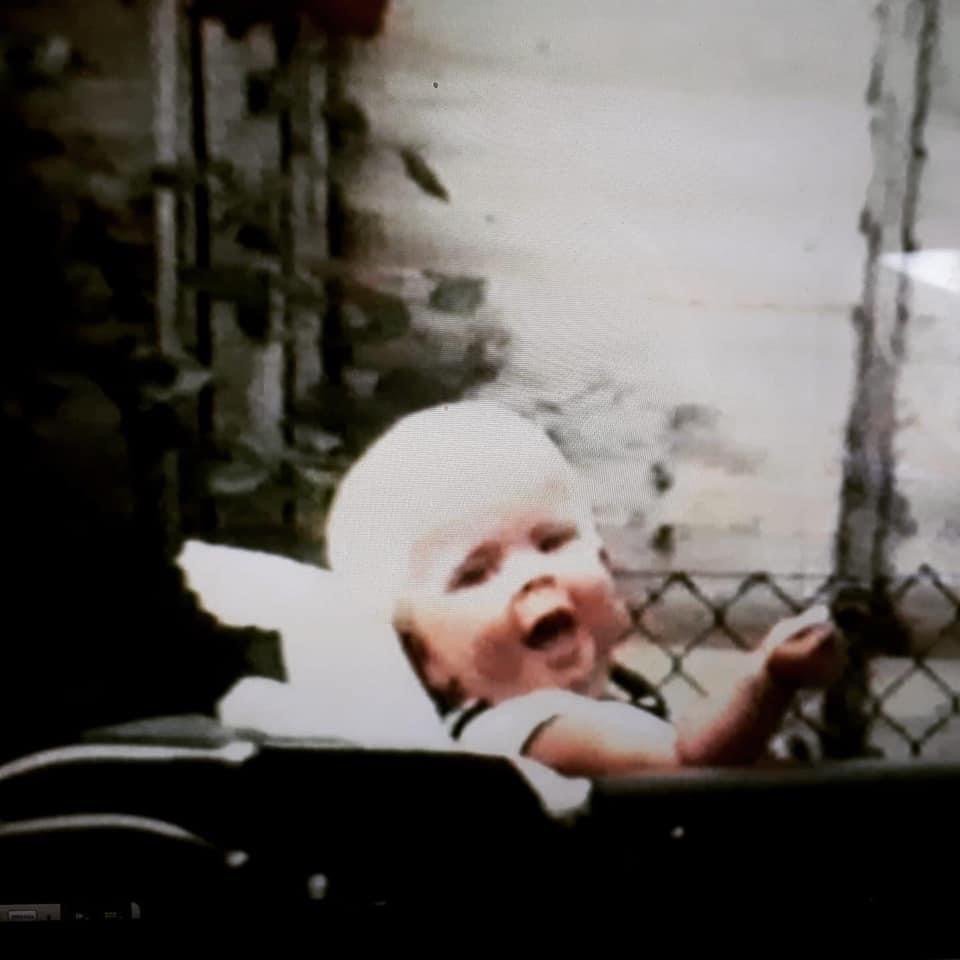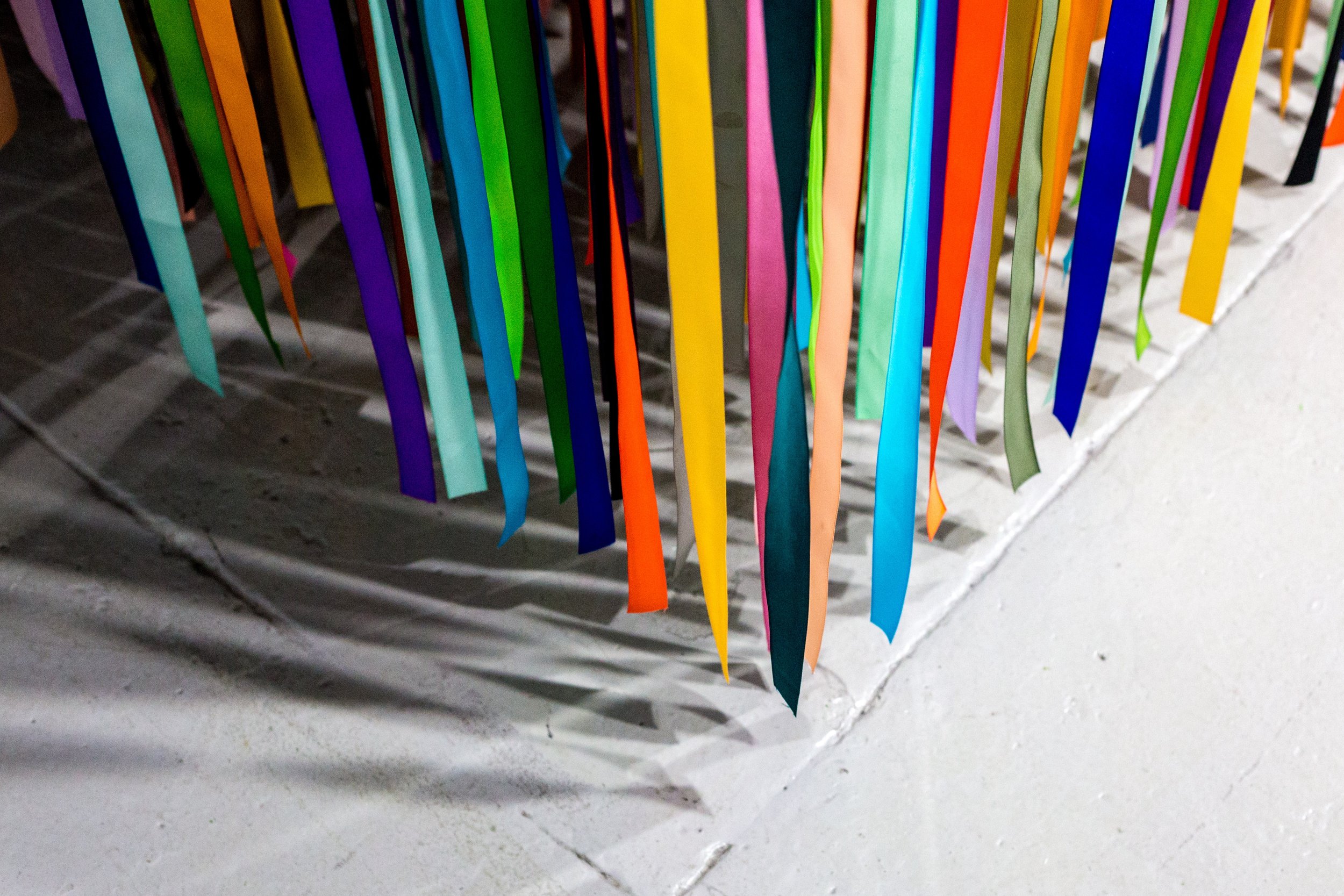Want to make your naming ceremony personal? Here’s how…
Living my best life in my Silver Cross pram, c. 1976
Possibilities, possibilities…
The beauty of putting together a naming ceremony is that you make your own rules for the day. A naming ceremony can be whatever you want and include any personal touches that will reflect and celebrate your family - whatever family looks like for you. A humanist naming ceremony tells your story and welcomes your new arrival in a way that is totally unique to you. The possibilities really are endless, and no two naming ceremonies will ever be the same. That’s part of the reason that I’m so excited to be adding this string to my celebrant bow.
I recently went on a training course with fellow Humanists UK celebrants, and came away feeling really energised and full of ideas. We largely work independently, so there’s nothing quite like spending time with fellow celebrants swapping ideas. Here are some of our ideas on how you could personalise your naming day, and make it a really special occasion that friends and family will be talking about long after the last slice of cake is eaten!
Promises
Many parents opt to include promises to their child. It’s not essential though, and some parents prefer to read something instead (see below). Whatever your instincts are, just go with them - there is no one ‘right’ way to do a naming ceremony.
A celebrant will sit and listen to your story and talk to you about your experience of parenthood and what your hopes are for your child as they grow and learn all about this world. These are the details that we use to write your ceremony - and that can also include helping you to write your parent promises. I’ll always draft something if parents would like me to, and work with them to finalise the wording.
You might also have a very clear idea of what you want to say, and prefer to write the promises yourself - which is absolutely fine, of course. And if you are nervous about speaking, that’s also fine - the celebrant can read the promises for you, and then all you need to say is ‘I/we will’! Everyone is different.
If you’ve chosen guideparents, you can also ask them to make promises. Sometimes guideparents will write those themselves and keep them as a surprise for you on the day, which can add a lovely element to the ceremony. They can promise to always be there to listen, to teach them how to be strong and make their voice heard - even to teach them the offside rule! Whatever works for your family.
Readings
It can be really nice to include a reading in your ceremony. You might want to read this yourself, or you can hand it over to one of your chosen guide-parents instead. Maybe even an older sibling. It is an all-round great way to help people feel involved in the ceremony, rather than ‘just’ being a spectator. Humanist ceremonies are all about being interactive!
There are all sorts of readings that you can include - funny or heartfelt, poetry or prose, from favourite children’s books or somewhere else entirely. There will be something out there that encapsulates what you want to say, and what your hopes are as a parent for your child as they grow up.
And if you’re stuck for ideas, your celebrant will be able to make some suggestions. I have a whole library of readings for each ceremony type - and namings are no exception. This one, by Oliver Jeffers, is a particular favourite. It’s quite long for one person to read, but could easily be ‘shared’ - perhaps by guideparents, even in place of specific guide-parent promises. I just love it because it is so humanist in its sentiment and so friendly and warm in its tone.
Here We Are
Well, hello.
Welcome to this planet. We call it Earth.
It is the big globe, floating in space on which we live.
We’re glad you found us, as space is very big.
There is much to see and do on Earth, so let’s get started with a quick tour.
The planet is basically made up of two parts.
Firstly, let’s talk about the land.
It’s what we’re standing on right now.
We know lots about the land.
Then there is the sea, which is full of wonderful things.
We know a lot about the sea, but we’ll talk more about that once you’ve learned to swim.
There is also the sky.
Though that can get pretty complicated…
OK, moving on.
On our planet, there are people.
One people is a person.
You are a person.
You have a body.
Look after it, as most bits don’t grow back.
The most important things for people to remember are to eat, drink and stay warm.
People come in many shapes, sizes and colours.
We may all look different, act different and sound different…
but don’t be fooled, we are all people.
There are animals too.
They come in even more shapes, sizes and colours.
They can’t speak, though that’s no reason not to be nice to them.
You may not be able to speak yet either, even though your head is filled with questions.
Be patient, you’ll learn how to use words soon enough.
Generally how it works is that when the sun is out, it is daytime and we do stuff.
The rest of the time is night, when it is dark, save for the moon and we sleep. (Please?).
Things can sometimes move slowly here on Earth.
More often though, they move quickly, so use your time well.
It will be gone before you know it.
Though we have come a long way we haven’t quite worked everything out, so there is plenty left for you do.
You will figure lots of things out for yourself, just remember to leave notes for everyone else.
It looks big, Earth, but there are lots of us on here, so be kind.
There is enough for everyone.
Well, that is planet Earth.
Make sure you look after it, as it’s all we’ve got.
Now, if you need to know anything else … just ask.
I won’t be far away.
And when I’m not around … you can always ask someone else.
You’re never alone on Earth.
If you want to know more about readings at naming ceremonies, take a look at this blog from Humanists UK.
Symbolic acts and rituals…
This is another really fun way to personalise your ceremony and again there are all sorts of possibilities.
Some families choose to light a unity candle where family members join together to light a candle representing the child who is being named. If you’re not a fan of naked flames at your naming ceremony, then perhaps you could try a ribbon ceremony, where key people in the child’s life bring a different coloured ribbon - yellow to represent joy, energy and the optimism that comes with new life, green for renewal and growth, orange for youth, creativity and fun - and tie it to a tree or special frame. Some people opt for a sand blending, where each person pours different coloured sands into a glass jar, to represent their wishes for the child.
You could even ask your guests to write little messages with their wishes and hopes onto tags, which could then be hung on a tree and be kept for your child to read as they get older.
Tree-planting, scattering of seeds, creating a family tree of fingerprints that you can then frame for your child to keep - there are all sorts of possibilities! Humanists UK has produced a really handy guide to symbolic gestures that you can read online here.
Me, circa. 1979, not amused at the arrival of a baby sister… still trying to get into the pram!
Get brothers and sisters involved…
I can very clearly remember being absolutely furious when my younger sisters arrived, which I think is often the case for older brothers and sisters.
Very often, siblings will really appreciate being involved in the naming ceremony. Being given a clear role and a special ‘job’ to do can help them feel part of the day. They might want to read something to them or sing to them, perhaps present them with a special toy to mark the occasion. They could even make their own promises to their little brother or sister. It’s all about showing them how you’re a family unit, and they are an important part of that too.
Celebrate your family and make your own traditions…
Each family is different, and each naming ceremony is different. Lots of celebrants offer other sorts of ceremonies - ones to welcome adopted children, to bring together blended families, to mark name changes. You make your own rules, and the traditions that represent your family.
Humanist celebrants welcome all families, and they’re ready and waiting to help you to put together the ceremony that you’ll always remember. To find a humanist naming celebrant in your area, just browse the Humanists UK directory.





